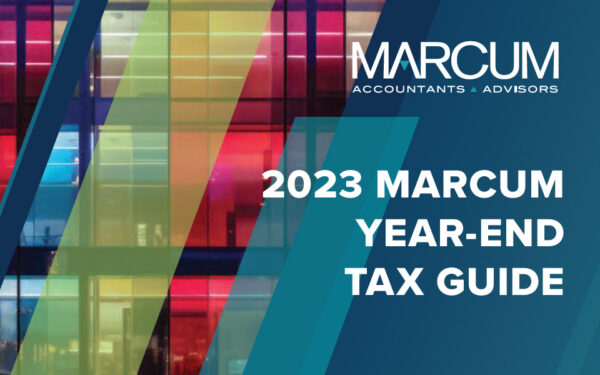
Cost Recovery & Accounting Methods
A holistic view helps you reduce current tax liabilities and capture the time value of money.
Cost recovery and related accounting methods are complicated topics. With hundreds of thousands of pages devoted to court cases and regulations on the subject, it’s no wonder even many sophisticated real estate professionals haven’t mastered the possibilities.
The fact is, a strategic approach to federal and State tax regulations may enable you to defer paying tax and enjoy the time value of money when acquiring, repairing or improving a commercial or residential rental property. As your advisors Marcum tax professionals take a holistic approach to the transaction, improvement or repair of tangible property and how you account for it on your balance sheet.
At Marcum, real estate is one of our core industry groups. We specialize in serving real estate clients large and small – and our people are well-versed in all areas of interest to real property owners, investors, tenants and users.
To better understand how you could benefit, ask Marcum.
Cost Segregation Studies
A high percentage of clients aren’t aware that it’s possible to accelerate depreciation and defer tax liability until a later date by dissecting your residential or commercial real estate into its taxable components. Instead of depreciating an entire residential property over 27.5 years or a commercial property over 39 years, it might be possible to depreciate some portions of the property over 5, 7, 10 or 15 years. A cost segregation report can be a highly effective strategy for people or entities who are holders, not flippers, of real estate, allowing them to defer portions of their tax liability early on when cash flow can be more challenging. A cost segregation report also allows for correct reporting of partial dispositions of property.
Tangible Property Reviews and Reports
The opposite of real property, tangible property like equipment or office fixtures may not have to be capitalized and amortized over 39 years. Depending on your specific situation, the tax regulations may assist you in taking necessary changes for tenants as repairs instead of improvements, allowing building owners and landlords to recover their costs in as little as one.
Preparation of Form 3115 – Accounting Method Change
We help you file Form 3115 to gain IRS approval when switching from a cash basis accounting method to an accrual basis method or vice versa. Changes in your depreciation or amortization methods generally do not require approval. If required as a result of a cost segregation study, we will help you file Form 3115 to ensure the resulting changes are properly reflected.
Projected Depreciation Report
A projected depreciation report projects looks at asset depreciation from 12 months to several years in the future. The report enables you to plan for your taxable income while holding the asset. This income may be considered Qualified Business Income (QBI), allowing for a 20 percent pass-through deduction.
State and Local Tax Depreciation Advice
While cost segregation studies and tangible property reviews can help businesses defer federal tax liabilities, depending on your specific situation and local tax jurisdictions, deferrals of local and state tax liabilities may also be possible. We’ll help you get to the right answers.
Identifying Qualified Rehabilitation Expenditures (QRE) for the Historic Tax Credit
Marcum provides you with advice and guidance regarding how your improvements can create a Historic Tax Credit for certain property. Tax saving opportunities exist for owners of all property types – multi-family residential, industrial, office and hotels.
Insights & News
Contacts
Select the region to view contacts.

















